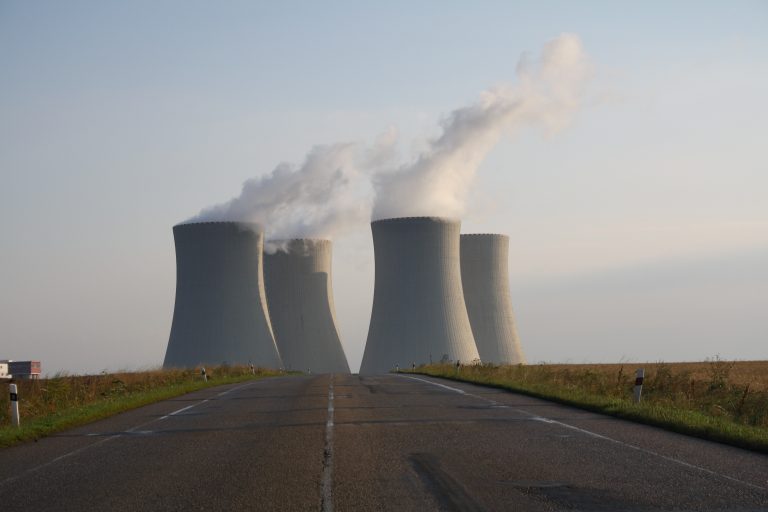
Are whistleblowers in the nuclear industry protected against retaliation?
Section 211 of the Energy Reorganization Act (ERA) protects employees who disclose concerns about nuclear safety or a violation a Nuclear Regulatory Commission (NRC) rule or regulation.
To learn more about whistleblower protections, call the whistleblower lawyers at Zuckerman Law at 202-262-8959, or click here.
Protected Nuclear Safety Whistleblowing
The ERA whistleblower anti-retaliation provision protects employees in the nuclear industry for engaging in protected whistleblowing, including:
- Raising concerns about nuclear safety;
- Refusing to engage in activities prohibited under either the ERA or AEA provided the employee has identified the alleged illegality;
- Testifying before Congress or at any Federal or State proceeding regarding any provision of the ERA or the AEA;
- Commencing or causing to be commenced a proceeding under or the enforcement of the ERA or AEA, or testifying in any such proceeding; or
- Assisting or participating in any other action to promote nuclear safety.
The ERA protects disclosures to an employer and disclosures to the NRC. Click here to report a safety or security concern directly to the NRC.
Prohibited Retaliation Against Nuclear Safety Whistleblowers
Section 211 of the ERA prohibits a broad range of retaliatory actions, including termination, harassment, suspension, demotion, blacklisting/refusal to hire, and any act that would dissuade a reasonable person from engaging further protected activity.
Recently, OSHA awarded $260,000 to a nuclear whistleblower who was wrongfully terminated after reporting safety concerns concerning a construction project at the Wolf Creek Generating Station, including breaches of minimum soil coverage requirements for emergency service water piping.
Proving ERA Whistleblower Retaliation
To prevail on an ERA whistleblower complaint, a complainant must prove by a preponderance of the evidence that the complainant’s protected whistleblowing was a contributing factor in the adverse action. A common source of indirect evidence of retaliation is “temporal proximity” between the protected whistleblowing and the adverse action. The closer the temporal proximity, the greater the causal connection there is to the alleged retaliation.
If the complainant’s protected activity was a contributing factor in the adverse action, the employer may avoid liability only if it demonstrates by clear and convincing evidence that it would have taken the same unfavorable personnel action in the absence of the protected whistleblowing. This is known as the “same decision defense.” To assess whether an employer has proven that defense by clear and convincing evidence, DOL evaluates the following factors: (1) whether the employer’s evidence meets the plain meaning of “clear” and “convincing”; (2) whether the employer’s evidence indicates subjectively that the employer “would have” taken the same adverse action; and (3) whether facts that the employer relies on would change in the “absence of” the protected activity.”
Remedies for Prevailing Nuclear Safety Whistleblowers
A prevailing nuclear whistleblower can obtain:
- Reinstatement,
- Lost wages,
- Damages for emotional distress and anguish, humiliation, harm to reputation, and other non-economic harms, and
- Attorney’s fees.
In Hobby v. Georgia Power Co., the Administrative Review Board affirmed an award of $250,000 in compensatory damages for emotional distress, humiliation, and loss of reputation.
Filing an ERA Whistleblower Retaliation Complaint
An ERA whistleblowing complaint must be filed initially with the Occupational Safety and Health Administration (OSHA) within 180 days of when the whistleblower knew or should have known of the retaliatory adverse action.
Licensee Duty to Maintain Safety Conscious Work Environment
The NRC has published guidance for licensees emphasizing the importance of maintaining safety-conscious environments in which employees feel free to raise safety concerns, both to their management and to the NRC, without fear of retaliation. In particular, the NRC has articulated the following expectations:
- Employers licensed by the NRC must have processes in place for employees to report safety concerns;
- Subcontractors have the same responsibilities as licensed entities;
- Senior management must involve themselves to the extent necessary to ensure all safety concerns are addressed; and
- Employees have a responsibility to raise safety concerns with their employer, and a right to bring concerns to the NRC if the employer fails to address them.
The NRC’s “Guidance for Establishing and Maintaining a Safety Conscious Work Environment” is available here.
The whistle-blower provisions of the ERA provide a strong remedy for whistleblowers in the nuclear energy industry. To learn if you have a potential whistleblower retaliation claim, call the Zuckerman Law Whistleblower Protection Help Line at 202-262-8959 or email [email protected].
For more information, go to Whistleblower Protection in the Nuclear Industry
Recommended Posts
-
Recording a Conversation Can Be Protected Whistleblowing In a nuclear whistleblower retaliation case, the DOL…








